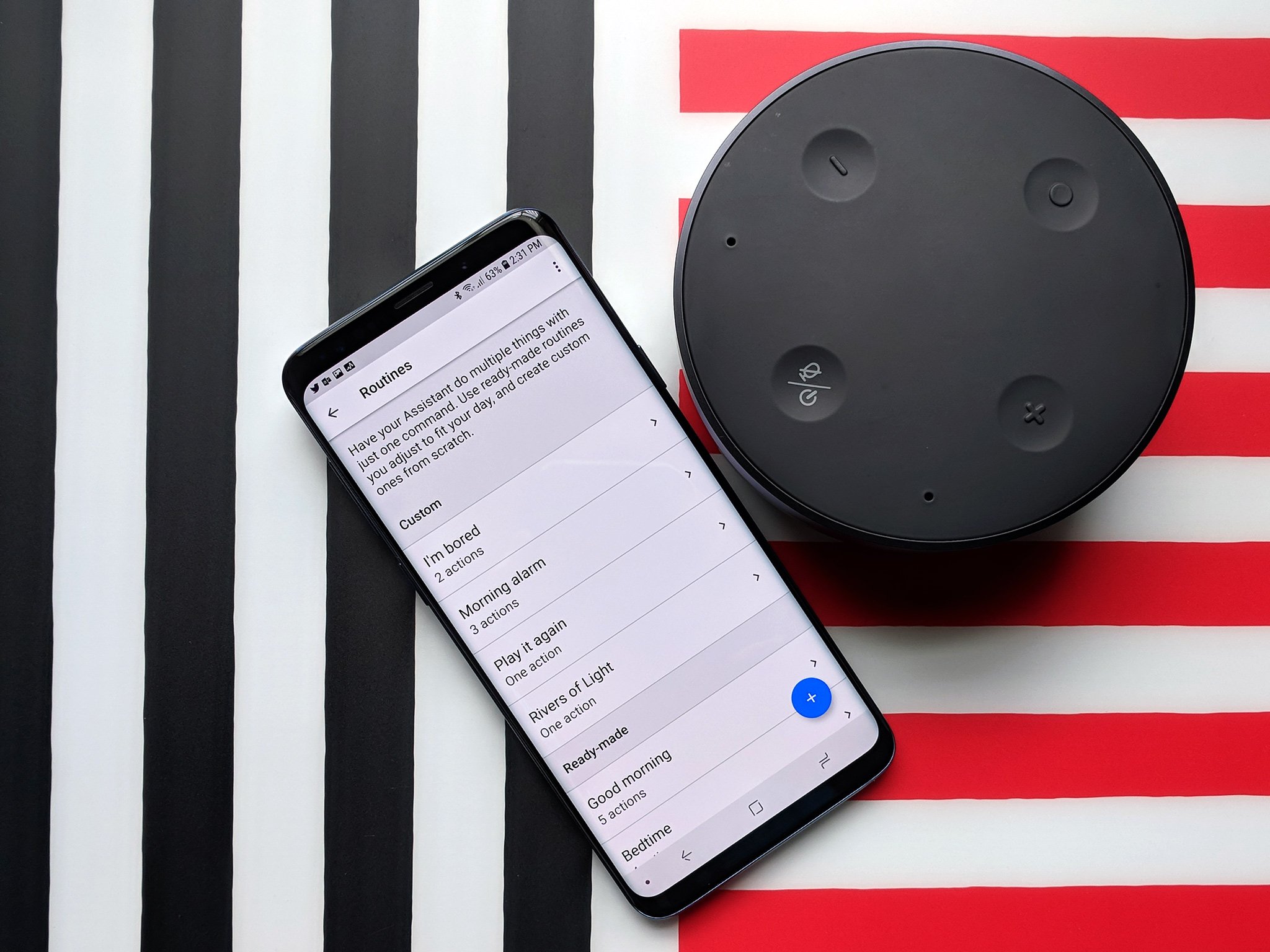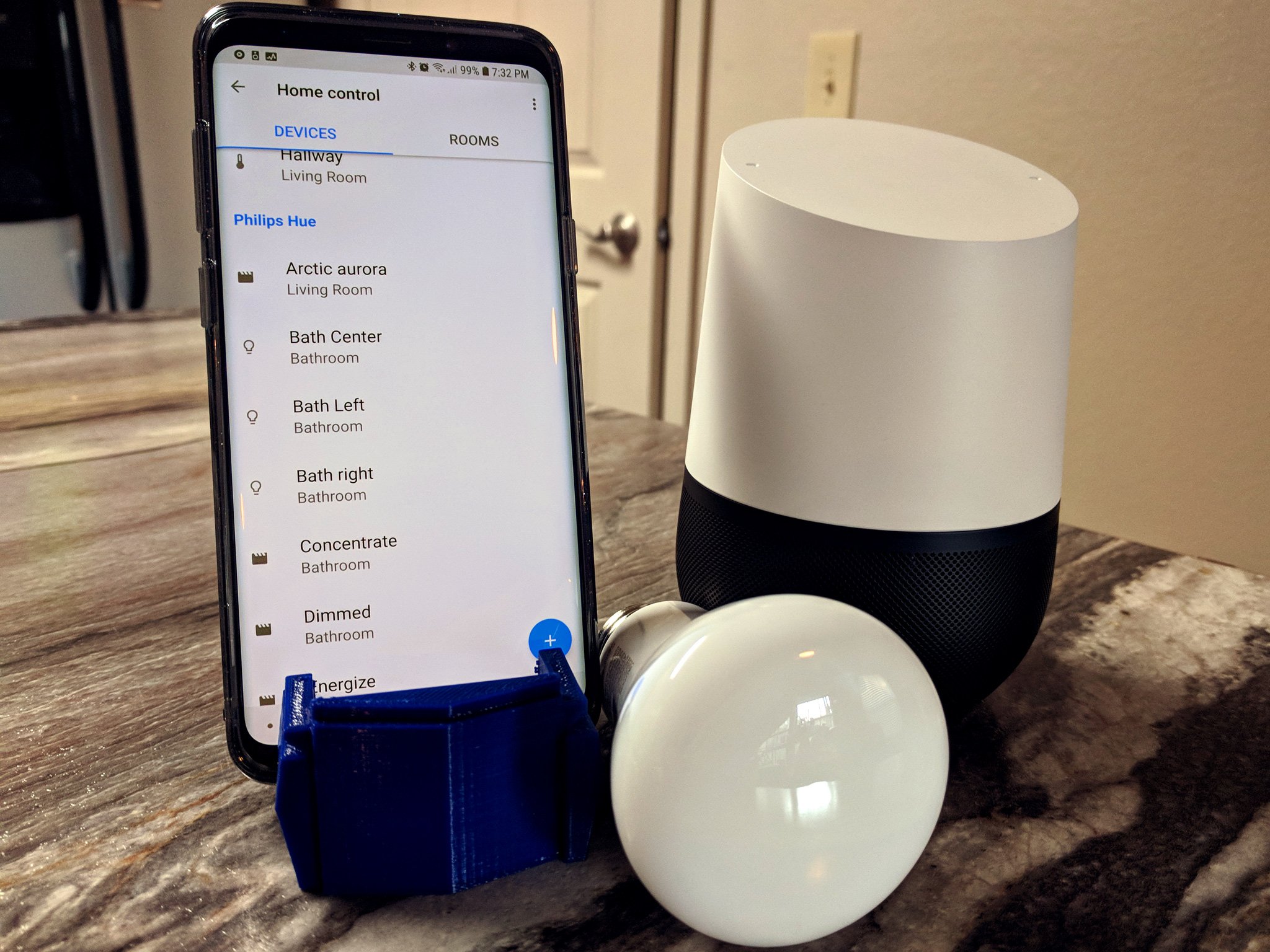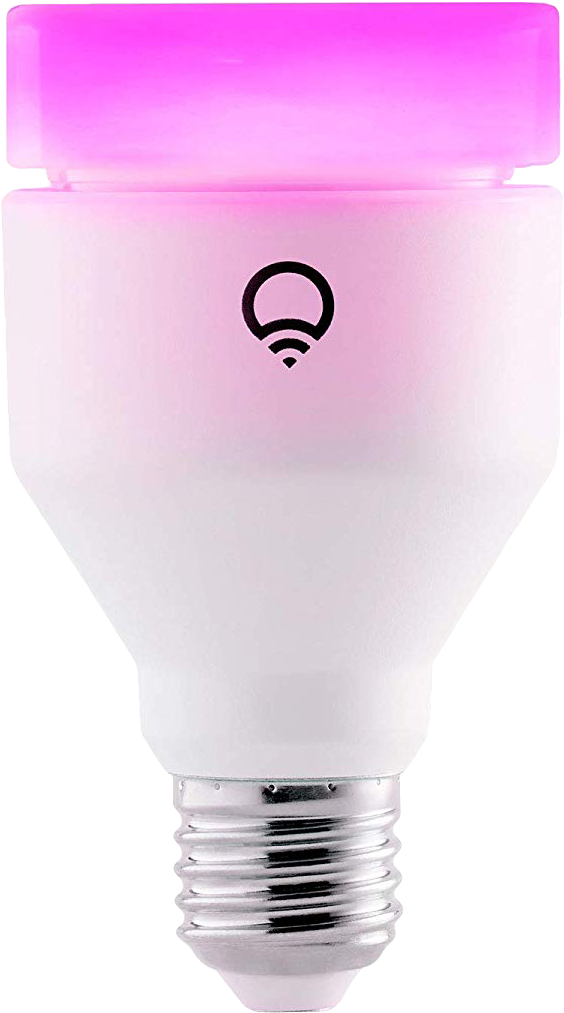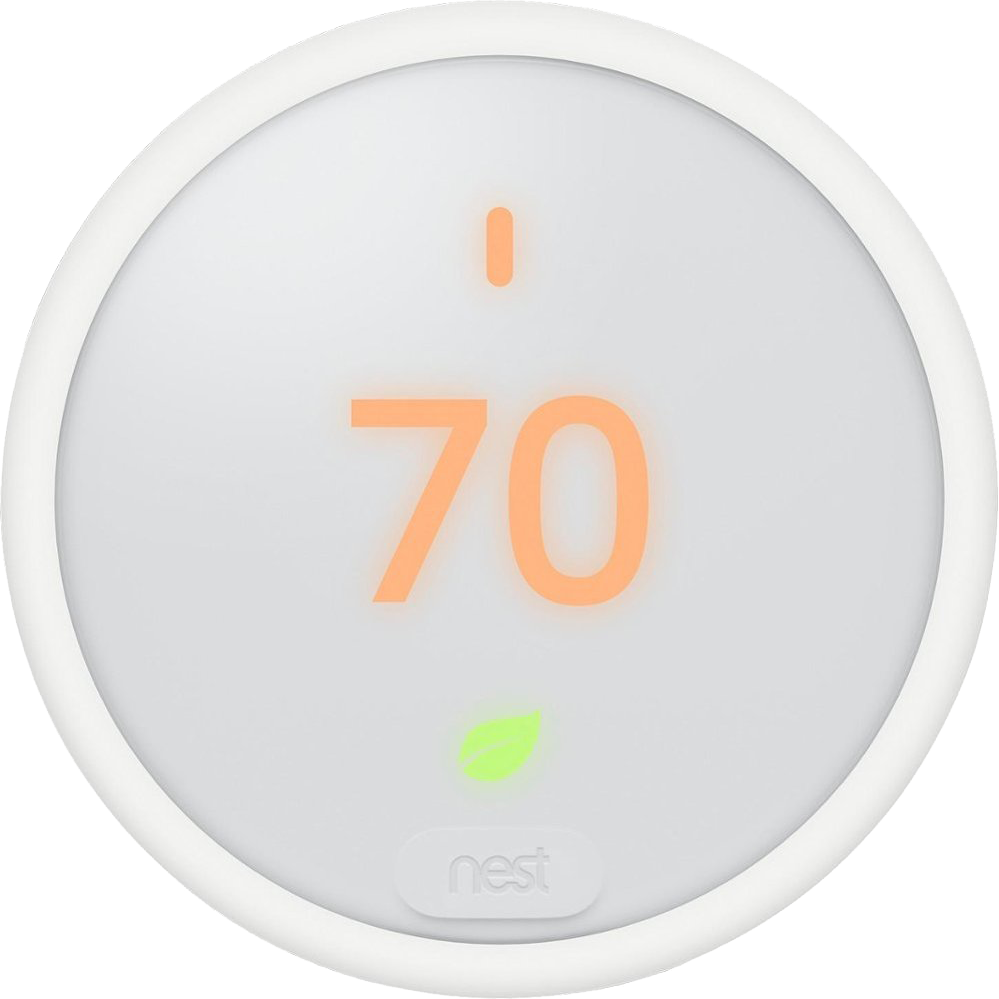Dictated reminders and subtle smart home cues help make digital nagging helpful rather than annoying.
I'm a bit scatterbrained at the best of times, and I've been known to put my head down in research or reading and not come up to stretch my legs or get so much as a drink of water until an ungodly hour of the evening. When a topic grabs my attention, my normally insatiable hunger can be ignored for days.
In short, I'm bad at adulting and basic self-care, and that lack of keeping to a routine impacted my work and my health in significant ways last year, especially when I went from working in a toxic but crowded TV station to working from home living alone. I knew I had to make changes, and looking at the smart home tech around me, I knew there are solutions that could help keep me on track with meals, breaks, and most importantly sleep cycles.
Google Assistant's scheduled routines and reminders have become my digital taskmaster, ensuring I help myself before I help all of my readers with how-tos, editorials, and product recommendations. And here's how I've found the balance between helpful and no-to-helpful nagging in my new digital nanny.
Spoken Routines
The problem I found with most of my past task-keeping mechanisms — such as Google Keep reminders and phone alarms — is that unlike getting a daily alarm ringer or notification ding and then just going on with my day, by having Google Assistant speak to me, the reminders feel more natural and are also harder to ignore since it occupies more time and can only be dismissed early by triggering Google Assistant for another action.
As part of my "morning alarm" routine — because you still can't add scheduled times to the Ready-made routines yet — I have Google start with saying a little affirmation or encouragement before getting to the day's weather and morning music. It's a small action, but it makes a big impact on my mornings, allowing my first thoughts in the morning to be "Oh, yeah, I live down the street from Walt Disney World. Let's crush this and go watch the fireworks."
I use spoken routines later in the day as well. I have a habit of ignoring lunch reminders on my phone. Google Assistant chiming up with "Hey, Ara, it's after 1PM. Let's get some food." seems like a short dictation, but it's just long enough to really interrupt my thought flow, better penetrating the fog of work to pull me out and encourage me to grab some grub.
Of course, half the reason spoken reminders work so well for me is that I've replaced the standard old Red voice with a smoother, softer Green male voice. There are now ten voices for Google Assistant in the US — 11 if you count the cameo voice John Legend, which falls back on Red when dealing with commands he hasn't recorded for yet — and you should really give them all a look to see if a different voice could make a difference in your life!
Action Routines
I live in an apartment, so I can't go quite as overboard as some of my smart home enthusiast cohorts, but I do have smart lights in every room but the kitchen, and I use those lights as a gentle way of nudging me in the direction of my daily routine to great effect. At night, I don't want to use a spoken reminder that I need to go to sleep — after all, on some nights, I'm already in bed before it triggers — but I do want something to help pull me out of what I'm doing.
Before bedtime, a scheduled routine turns off the lights in every room but the bathroom — an omission added after a pre-bed shower was plunged into pure darkness — and that shift signals me to wrap it up after this episode or this r/WritingPrompts fluff, take my allergy medicine and answer the siren song of my weighted blanket. This routine also sets my Nest thermostat to 72 degrees, with the cold helping encourage a swift move from the living room to under my blankets in bed.
Scheduled Routines need to get out of the house
The biggest problem with this system is that it only works when I'm home — because scheduled routines can only be scheduled for Google Assistant speakers. Despite doing all of your routine creation and testing on a phone, you can't schedule Routines to fire on a phone unless you tie them to an alarm in the Google Clock app, and even those routines are more limited in scope and only fire when you dismiss the alarm.
If I head to the park for photography or pleasure, my entire daily routine goes out of the window, as do my odds of eating regular meals at regular times. When I travel home to visit my family, I have to recalibrate my scheduled routines to fire on the Google Home in their house or go without them for my visit. While I'd eventually love to see a world where your routines and reminders will follow you from place to place, from smart speakers to phones to wearables, I'd settle for being able to get scheduled routines when I'm out and about, not just when I'm being a homebody.
But if it's limited to my home right now, Google Assistant Routines have definitely helped me rein in my bad habits and keep to a schedule, which has improved my overall mood and productivity in ways that you don't even realize until you miss a day and realize how miserable you are without it. If you have a smart speaker, set up a few routines and see how they can help you find a better normal.
Smart up your routines
LIFX A19 Wi-Fi Smart LED Multicolor Light Bulb
Unlike Philips Hue, LIFX doesn't need a hub to connect to your devices through, and it uses the same smart lighting commands with Google Assistant.
OtterBox Den Series Mount for Google Home Mini
The Google Home Mini is a great little speaker, but putting it on a vertical stand like this helps you better see the LEDs and redirect the sound towards you.
Google Nest Thermostat E
Get the same great learning smarts, the same easy interface, and a white palette that blends into the wall without spending an arm and a leg.







Tidak ada komentar:
Posting Komentar